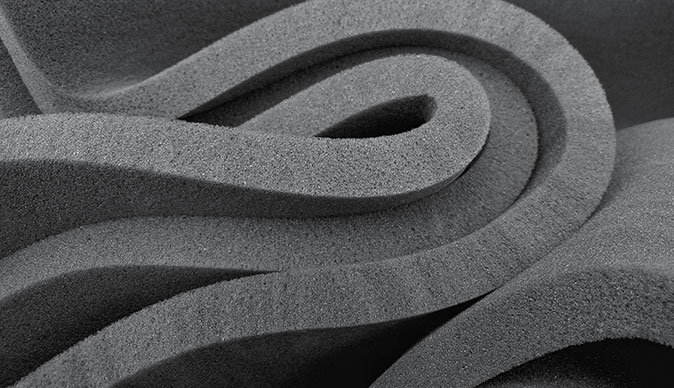Neoprene Sponge
About Neoprene Sponge
Neoprene sponge, also known as neoprene foam, is a type of synthetic rubber material that is produced by combining neoprene rubber with various additives and blowing agents. The resulting material is a soft, flexible, and compressible foam with a closed-cell structure, which means it has tiny air pockets trapped inside the material that give it its soft and cushiony texture.
Neoprene sponge has excellent physical properties, such as resistance to ozone, UV radiation, weathering, and chemicals. It also has good resistance to water and air permeability, making it suitable for use in sealing and insulation applications. Neoprene sponge has a wide range of applications in various industries, including automotive, marine, construction, and electronics.
Some common applications of neoprene sponge include:
- Sealing and gasketing: Neoprene sponge is commonly used as a sealing and gasketing material in automotive, marine, and other industrial applications. It can provide a high level of compression, making it effective in preventing air, water, and dust from passing through gaps.
- Thermal insulation: Neoprene sponge has good thermal insulation properties, making it useful in applications that require heat or cold insulation, such as in HVAC systems and refrigeration.
- Vibration dampening: Neoprene sponge is used in applications that require vibration dampening, such as in electronic equipment and machinery.
- Padding and cushioning: Neoprene sponge is used as a padding material in sports equipment, such as knee pads and elbow pads, as well as in medical equipment, such as orthotics and prosthetics.
Overall, neoprene sponge is a versatile material that offers a wide range of physical properties and applications. Its soft and cushiony texture, coupled with its resistance to water, chemicals, and UV radiation, make it a popular choice in many industries.
Neoprene sponge offers good resistance to a wide range of chemicals, making it suitable for use in various industrial and commercial applications where exposure to chemicals is a concern. Some of the chemicals that neoprene sponge is resistant to include:
- Oils and lubricants: Neoprene sponge has good resistance to oils, lubricants, and other petroleum-based products.
- Acids and alkalis: Neoprene sponge is resistant to many acids and alkalis, such as hydrochloric acid, sulfuric acid, and sodium hydroxide.
- Solvents: Neoprene sponge is resistant to many solvents, including alcohols, ketones, and esters.
- Oxidizing agents: Neoprene sponge has good resistance to oxidizing agents, such as chlorine and hydrogen peroxide.
- Water and moisture: Neoprene sponge has good resistance to water and moisture, making it suitable for use in applications where exposure to water is a concern.
It’s important to note that while neoprene sponge has good chemical resistance, its resistance may vary depending on the specific chemical, concentration, temperature, and duration of exposure. Therefore, it’s important to check the chemical compatibility of neoprene sponge with the specific chemical being used in your application before selecting it as a material.

Quick Enquiry
If you need help or a quote regarding any of our processes, materials or capabilities, please contact us on +44 (0)1903 235784 or complete the quick enquiry form below.
Neoprene Sponge Enquiry
Why C&W Seals?
C&W Seals constantly review our activities to allow us to provide the latest products & manufacturing techniques in the marketplace. Our highly-trained staff specialise in the manufacturer of tailor-made products to meet specific customer specifications.
By regularly benchmarking our material prices we can guarantee new and current clients the best possible prices as well as bringing our clients the latest products with our forward thinking and dedicated mindset.
Need Help?
If you can't find the answer that you need, or would just like to speak to someone about any of our processes, mateials or capabilities, then please do get in touch.
Phone
Request a quote and we'll send it back within 24 hours
If you need a quote for Material Conversion, please complete our quote request form and we will send a quote back within 24 hours.

